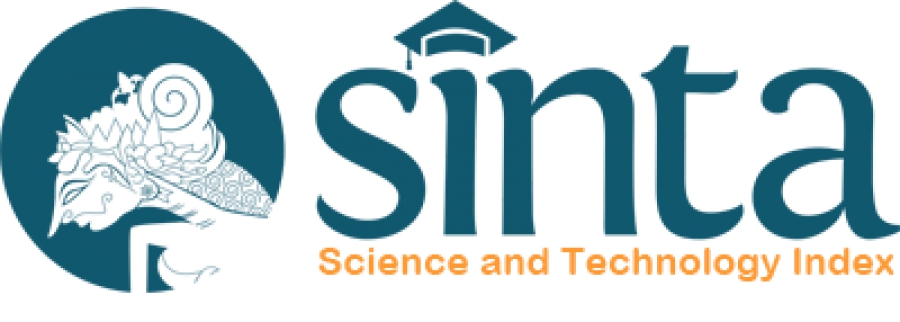Hubungan Kompetensi Leadersip Guru Pai Dan Tingkat Disiplin Siswa Kelas IX di MTs Darul Ulum Ciherang Pondok Kabupaten Bogor
Abstract
Discipline in education is a must to get good learning outcomes. Therefore, based on information from the teacher at Mts Darul Ulum Ciherang Pondok in 2021 the authors found that most of the IX grade students experienced a lack of discipline level. So that the leadership competence of PAI teachers in guiding students in improving student discipline during learning is very much needed, because educators must be able to make students make decisions, solve problems, and have a leadership spirit so that students' disciplined attitudes will grow. This study aims to determine the relationship between leadership competence and the level of discipline of class IX students in a secondary school in Bogor Regency. This study uses a quantitative method by conducting a correlation test. The researcher obtained data from a sample of 89 class IX students through a questionnaire. The results of data analysis showed that the Pearson Correlation was 0.418, when viewed from the interpretation table, the results of 0.418 lie between 0.40-0.70. That is, the result of 0.418 is included in the criteria which is quite strong so that the researcher can conclude that there is a positive correlation between the X and Y variables with a moderate relationship. In addition, it is proven by a significance value of 0.000 which is smaller than 0.05. Thus, it can be concluded that between PAI teacher leadership competence (X) and the discipline level of Class IX students at Mts Darul Ulum Ciherang Pondok (Y) there is a significant and positive relationship. In other words, the better the leadership competence of PAI teachers, the higher the level of student discipline will be.
Keywords
Full Text:
PDFReferences
Alif Mustopa, dan Arif Muadzin (2021) Konsepsi Peran Guru Sebagai Fasilitator dan Motivator Dalam Proses Pembelajaran Pendidikan Agama Islam. Journal Of Islamic Education Annaba Vol. 7, No 178.
Amrin, Siti Asiah, M Munawwir Al-Qosimi, Ade Irma I. Mustika Utin R., N. S. (2022). New Normal and Islamic Education: Islamic Religious Education Strategy On Educational Institutions in Indonesia. Jurnal Pendidikan Dan Konseling, 4(3), 120–129.
Amrin dan Juryatina. (2021). Students ’ interest in Arabic language learning : the roles of teacher. Journal of Educational Management and Intruction, 1(1), 40–49.
Asiah, S., Huda, M., Amrin, A., Kharisma, R., Rosyada, D., & Nata, A. (2022). The Dynamics of Islam in Indonesia in the Perspective of Education. Prosiding ICIiS and ICESTIIS, 1–9. https://doi.org/10.4108/eai.20-10-2021.2316321
Budi, M. H. (2018). Manajemen Pengembangan Kompetensi Kepribadian Dan Leadership Guru Pendidikan Agama Islam. Jurnal Dirasah, I(1), 100-117
Farida. A. (2014) Pilar-Pilar Pembangunan Karakter Remaja: Metode Pembelajaran Aplikasi Untuk Guru Sekolah Menengah: Bandung: Nuansa Cendikia.
Fiana, Fani Julia. (2013). Disiplin Siswa Di Sekolah Dan Implikasinya Dalam Pelayanan Bimningan Dan Konseling. Jurnal Ilmiah Konseling. Vol. 2, No 23, 2
Hambali, M. (2006). Manajemen Pengembangan Kompetensi Guru PAI. Jurnal MPI, 70-87. Sagala, S. (2013). Kemampuan Professional Guru dan Tenaga Kependidikan. Bandung: Alpabeta
Hasanah, A. (2020). Pentingnya Kompetensi Leadership Pada Guru MI. Indonesian Journal of Islamic Educational Management, 10-19.
M. Fahli Riza, Achmad Mujab Masykur. Hubungan Antara Motivasi Berprestasi Siswa Dengan Kedipsiplinan Pada Siswa Kelas 8 Reguller Mtsn Nganjuk. Jurnal Empati. Vol. 2, No 146- 152
Manizar. E. (2015) Peran Guru Sebagai Motivator Dalam Belajar. Jurnal Pendidikan Agama Islam.
Mulyas. E. (2012)Manajemen Berbasis Sekolah. Konsep, Strategi dan Implementasi. Bandung: PT Remaja Rosdakarya
Mulyas. E. (2012)Manajemen Berbasis Sekolah. Konsep, Strategi dan Implementasi. Bandung: PT Remaja Rosdakarya
Mulyasa, E. (2016). Menjadi Guru Profesional: Menciptakan Pembelajaran Kreatif dan Menyenangkan. Bandung: PT Remaja Rosdakarya
Rahayu, R. (2018). Pengaruh Kepemimpinan Guru Dan Keterampilan Manajemen Kelas Terhadap Perilaku Belajar Siswa Kelas IV. Jurnal Pendidikan Dasar PerKhasa, 220-228.
Ramayulis.H. (2015) Ilmu Pendidikan Islam. Jakarta: Kalamulia
Rusdiana. (2014). Konsep Inovasi Pendidikan. Bandung: Pustaka Setia.
Sa’diyah. M. (2020) Menggagas Model Implementasi Kompetensi Leadership Guru PAI Dalam Mengembangkan BUdaya Religius Budaya Sekolah.Jurna pendidikan Islami,Vol. 12 No 206-208.
Sanjaya, W. (2008). Pembelajaran dalam Implementasi Kurikulum Berbasis Kompetensi. Jakarta: Kencana.
Sukmadinata, N. S. (2007). Bimbingan dan Konseling dalam Praktek. Bandung: Maestro Slameto (2015) Belajar Dan Faktor-Faktor Yang Mempengaruhi: Jakarta Rineka Cipta Kurniadin, D. (2012). Manajemen Pendidikan. Yogyakarta: Ar-Ruzz Media.
Shobron; Amrin;, & Rosyadi, I. M. (2020). Islamic Education Values in the Tradition of Peta Kapanca of Mbojo Community Tribe in West Nusa Tenggara Department of Islamic Law Universitas Muhammadiyah Surakarta Indonesia Mut122@ums.ac.id. International Journal of Advanced Science and Technology, 29(5), 6802–6812.
Supriyanto, Amrin, S. (2022). The Role of Islamic Religious Education Teachers in Implementing Multicultural Education Based on Values of Local Wisdom in State Junior High School 15 Surakarta. IMProvement, 9(1), 65–81. https://doi.org/https://doi.org/10.21009/Improvement.091.07
Supriyanto, A. (2022). Management of Islamic Religious Education Learning Based on Cooperative Problem E-Learning During The Covid-19 Pandemic (Study on Muhammadiyah High School Sukoharjo, Central Java). Jurnal Pendidikan Dan Konseling, 4(3), 30–36. https://core.ac.uk/download/pdf/322599509.pdf
DOI: https://doi.org/10.32507/fikrah.v5i2.1331
Refbacks
- There are currently no refbacks.
Copyright (c) 2022 Muhamad Zandan Zaeni Rahman, Sri Nurul Milla, Badruddin Subki

This work is licensed under a Creative Commons Attribution-ShareAlike 4.0 International License.
Indexed by:
© Copyright CC BY-SA Fikrah, p-ISSN: 2599-1671, e-ISSN: 2599-168X |





